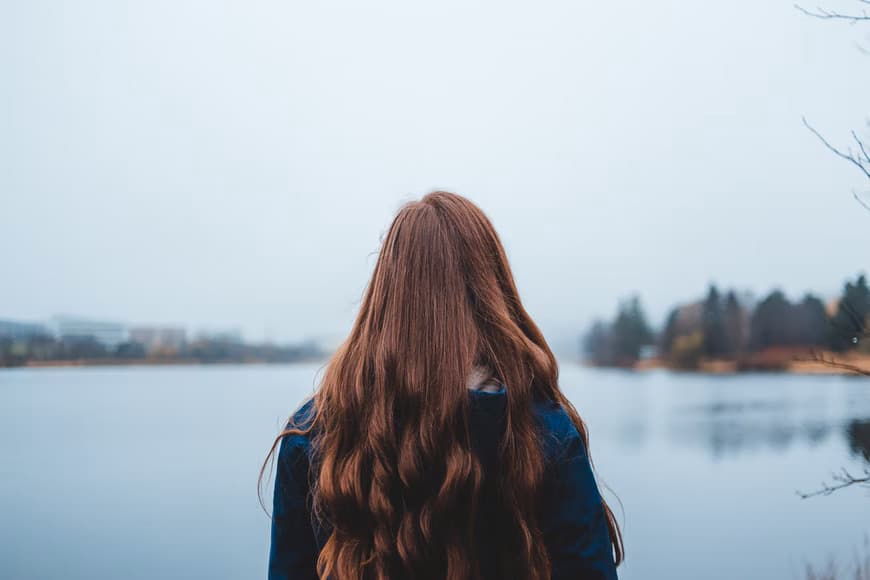Swimming is an essential life experience that we cannot afford to forgo. Besides aiding in the burning of excess calories, swimming helps in reducing stress by uplifting one’s moods, strengthening body muscles, and improving blood circulation. Swimming is particularly a vital exercise during the summer when everyone wants to be outside enjoying the warm weather.
Though a vital activity, swimming comes with its own shortcomings. For starters, swimming can lead to regrettable outcomes such as drowning and death when not carefully undertaken. Besides this, swimming may also affect your hair negatively, especially if you swim in the dirt, salty, or chlorine-based water bodies.
There is a lot of controversy surrounding the impacts of lake water on the hair. This emanates from the fact that lake water is fresh water which, in a real sense, ought to have fewer effects on your hair compared to the other types of water, such as the salty and chlorine water found in pools and oceans. But is this really the case? Can you trust lake water with your hair? Keep reading to find out if this water is safe for your hair.
Is Lake Water Good for Your Hair?
A lake refers to a large body of water that’s surrounded by land. Lakes can either be man-made or natural. The impact a particular lake’s water will have on your hair is dependent on its nature. A lake that cycles its water in and out often will have less impact on your hair than a lake that doesn’t let water in and out regularly.
Moreover, a lake with a muddier bottom will have more severe impacts on your hair than a lake with clean bottoms. Take note also that some lakes, especially the man-made lakes, may contain chlorine which is known to have severe effects on the hair.
Although lake water is said to be fresh and hence gentler on your hair compared to the chlorinated and salty pool and ocean water, it’s always recommendable to take precautions when swimming in a lake as the water may contain harmful bacteria and germs that may affect your hair negatively.
Some lakes may also lead to your hair turning green. This is a common phenomenon in those lakes that do not cycle their water in and out, leading to the breeding of microorganisms. Besides affecting your hair color, the germs and bacteria in some lake waters may also lead to the hardening and weakening of your hair.
The fresh water in most lakes is also not of the recommended temperatures and may, as such, affect your hair negatively. To be on the safe side, it’s always recommended to take the necessary precautions when getting into the lake to avoid breakage and other harmful side effects from such water. You can comfortably maintain the health of your hair when swimming in a lake using the following measures;
How to Protect Your Hair When Swimming in a Lake

Before swimming in a lake, it’s essential to take the following measures geared towards protecting your hair from the negative effects of the lake water;
Wear a Swim Cap
A swim cap is essential protective wear that you shouldn’t miss when getting into the lake water. This cloth will cover your hair, protecting it from the harmful bacteria, germs, and other properties that may be present in the lake water.
To ensure the cap stays intact throughout your swimming session, ensure to first wet it with fresh water and nourish it with a mild serum. The wetness in the hair will help hold the swimming cap in place for the entire swimming period.
Wet Your Hair with Fresh Water before Getting into the Lake
Washing your hair with clean, fresh water before diving into the lake is a top-tier secret to keeping your hair healthy and glowing. The freshwater will occupy your hair cuticles, keeping them away from becoming clogged with the dirty/germs contained in the lake water.
Tie Your Hair in a Ponytail
Tying your hair in a ponytail bun is an effective way to keep it from breakage and damage caused by the heavy winds experienced when swimming in lake water.
Rinse and Shampoo Your Hair as Soon as You Get Out Of the Lake
It’s advisable to rinse and shampoo your hair immediately after getting out of the lake. This will help get rid of all the harmful chemicals that might have stuck in your hair as you swam.
Stay Away from Blow-Drying Your Hair for A Few Weeks
It’s essential that you stay away from blow-drying your hair for a few weeks after getting out of the lake. Though a beneficial practice, blow-drying your hair weakens it and may lead to breakage. As such, avoid exposing your already weakened hair from the swimming experience to the impacts of a blow-dry.
Protect Your Hair Color by Wearing a Sun Hat to Minimize the Bleaching Effects of the Sun
If you recently dyed your hair and have plans to swim in lake water, it will be helpful if you first invested in a sun hat or scarf before undertaking this activity. Sun in itself is damaging to your hair, and overexposure may lead to bleaching of your hair color, leaving it dull. To avoid this, wear a hat when under the hot sun and avoid swimming under it for long hours.
Final Thoughts
Summer is almost here, and as the norm, every one of us will be looking for the nearest water body to dive in and have a good time relaxing and meditating. If lake water is the most readily available water body in your area, you can still have a good time swimming in it, provided you incorporate the above-given tips.
Your hair is a critical body element that requires the best care if you are to get encouraging results. Though considered fresh water, lake water is not entirely safe and may contain harmful properties that may end up damaging your hair if not well treated before and after swimming in it.
This is why this article has provided you with the nitty-gritty of how to take care of your hair when swimming in lake water to ensure you reap the maximum benefits this summer as you enjoy yourself in your nearest lake.
